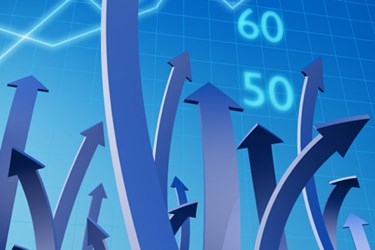$25B Biosimilar Market Set To Boom By 2020

As more and more licenses for biologics are set to expire, Pharma companies around the globe are scrambling for a share of the biosimilar market. Despite some obstacles, which include complex manufacturing difficulties and regulatory delays, Reuters reports over 245 companies have begun developing and manufacturing biosimilar alternatives to existing biologics.
According to Reuters, 700 biosimilar products are currently in the pipeline and this number is expected to exponentially increase over the next few years, forming the basis for a $25B biosimilars market by 2020.
In order to help companies navigate the tricky terrain of biosimilars, Thomson Reuters released a study, Biosimilars: A Global Perspective of a New Market — Opportunities, Threats, and Critical Strategies 2014, in which researchers offer companies strategies for staying competitive in an evolving and unpredictable market.
There has recently been some dissension among regulatory agencies over how or even if bioequivalency or interchangeability could be established. The FDA has only recently begun to consider applications for biosimilar products. Regulators and prescribers alike are expected to be cautious with biosimilars for the first few years they’re on the market.
Biosimilars are also presenting companies with a new set of development and manufacturing issues. According to the World Health Organization (WHO), biologics and subsequent biologics present far greater challenges than chemical generics. The use of living organisms significantly complicates the process of establishing bioequivalency, as there must be consistency between manufactured batches.
In such a potentially lucrative market, one might expect Big Pharma and generic leaders to dominate the biosimilar market as well, but the Thomson Reuters report indicates this might not be the case. Biologic makers are years ahead in terms of expertise and technology and new companies, formed for the express purpose of developing biosimilars, could take the lead.
Reuters expects South Korea and Brazil to take the lead in biosimilar development, with manufacturing in India also making a substantial contribution to the market.
Due to the sophistication of biologics manufacturing and the years of research required to develop them, biologics are extremely cost prohibitive. The availability of biosimilars has the potential to drastically reduce treatment costs and make the technology available to more patients.
Jon Brett Harris, managing director of Thomson Reuters Life Sciences, explained, “Rather than forgo the benefits of biologics, governments and payers are counting on biosimilars to dramatically change drug development and patient costs by reducing the price tag of important biologics and increasing access to life-saving drugs.”
Thomson Reuters expects patient savings to total between $11 billion and $33 billion in the European Union alone.
